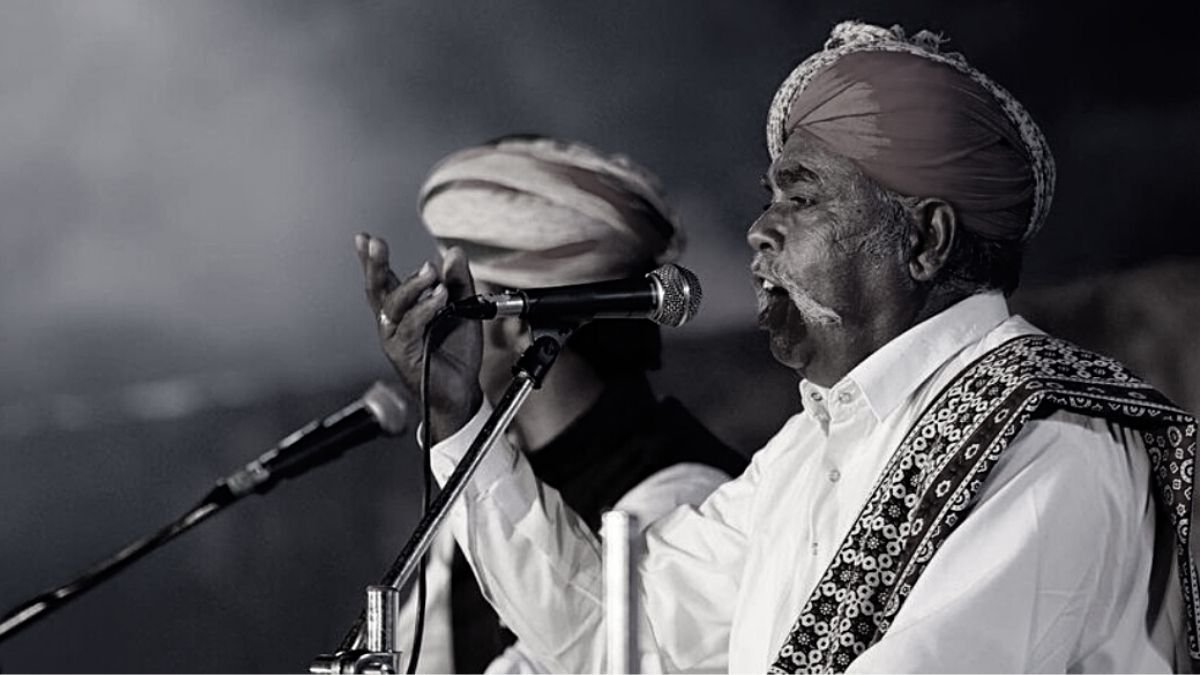The Manganiyars are a renowned community of folk musicians from the Thar Desert region of Rajasthan, India. Known for their exceptional musical talent and deep cultural roots, the Manganiyars have been instrumental in preserving and performing Rajasthani folk music for generations. Here’s an overview of their distinctive artistry:
Cultural Background
The Manganiyars belong to the Muslim Rajput clan and are traditionally known for their role as court musicians and performers. Their music is an integral part of Rajasthani culture, deeply embedded in the region’s heritage and history. The community primarily resides in the districts of Jaisalmer, Barmer, and Jodhpur, where they have maintained their musical traditions over centuries.
Musical Style and Instruments
Manganiyars are celebrated for their unique and expressive musical style, which encompasses a range of folk genres including devotional, celebratory, and storytelling songs. Their music is characterized by:
- Soulful Vocals: The Manganiyars are known for their powerful and emotive vocal delivery. Their singing often features intricate ornamentation and improvisation, reflecting the depth of their musical expression.
- Traditional Instruments: The Manganiyars play a variety of traditional instruments, including:
- Kamaicha: A stringed instrument similar to a fiddle, which is a staple in Manganiyar music.
- Dholak: A two-headed drum providing rhythm and beat.
- Harmonium: A keyboard instrument used to accompany the vocals.
- Sarangi: A stringed instrument that adds a melancholic and resonant tone to the music.
Repertoire and Themes
The repertoire of Manganiyar music is diverse, covering various themes such as:
- Sufi Devotional Songs: Reflecting the Sufi influence, these songs express devotion and spiritual longing.
- Rajasthani Folk Songs: Celebrating themes of love, valor, and everyday life in Rajasthan.
- Wedding and Festive Songs: Performed during weddings and other celebrations, these songs add joy and festivity to the occasion.
- Epic Narratives: Music that recounts historical and mythological tales, often through elaborate storytelling.
Performance Style
Manganiyar performances are known for their lively and engaging nature. They often involve:
- Interactive Engagement: The performers interact with the audience, creating a dynamic and immersive experience.
- Improvisation: The ability to spontaneously adapt and elaborate on musical themes is a hallmark of Manganiyar performances.
- Traditional Attire: Performers typically wear traditional Rajasthani attire, adding to the visual appeal and authenticity of their performances.
Cultural Significance
The Manganiyars play a crucial role in preserving and promoting Rajasthani folk music. Their performances are a testament to the rich musical heritage of Rajasthan and continue to be celebrated in both local and international settings. The community’s dedication to their art form ensures that these traditional melodies and rhythms are passed down through generations.
In essence, the Manganiyars embody the spirit and soul of Rajasthani folk music, blending historical significance with vibrant artistry to create a musical experience that is both timeless and evocative.

Leave a Reply